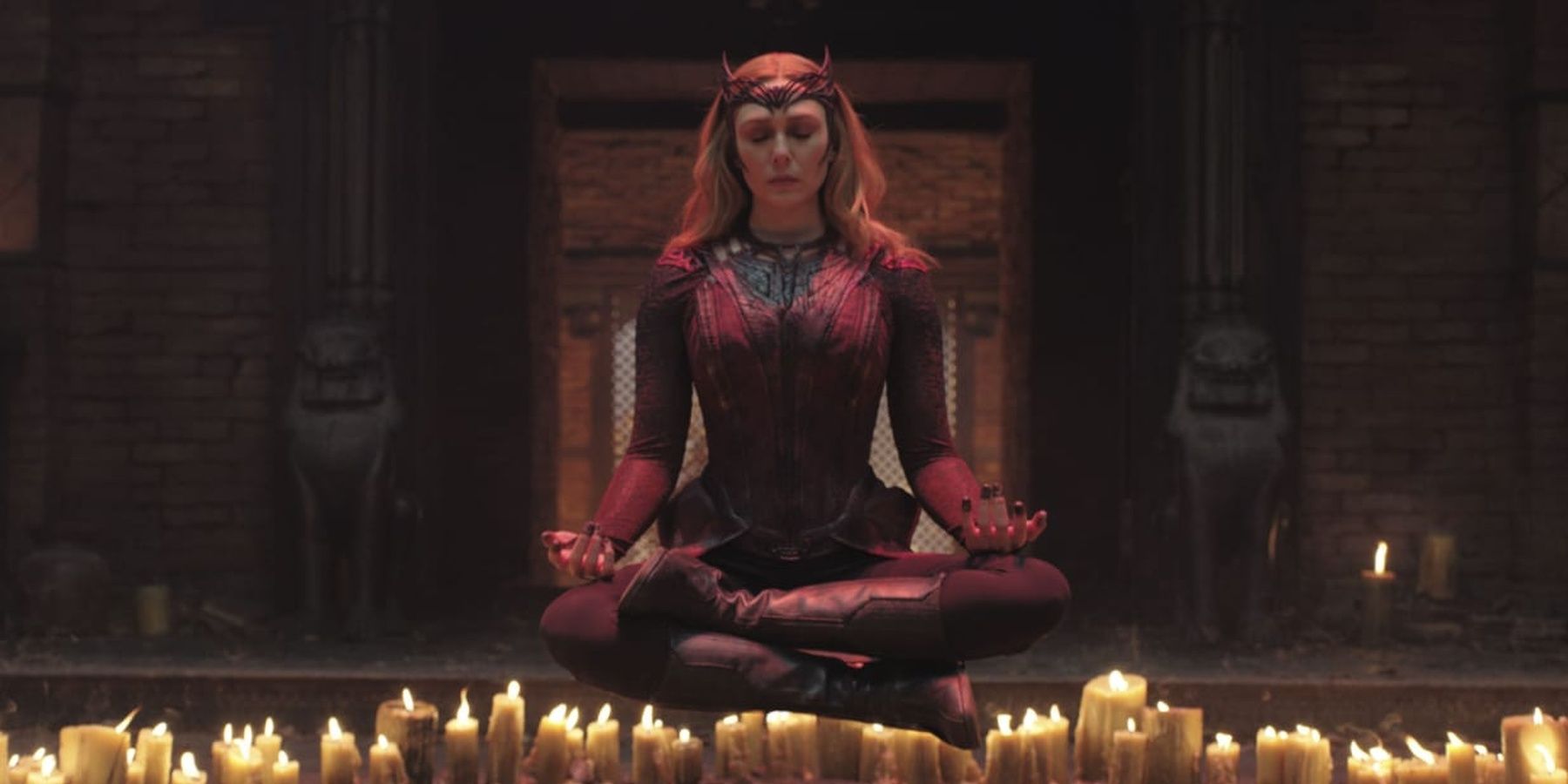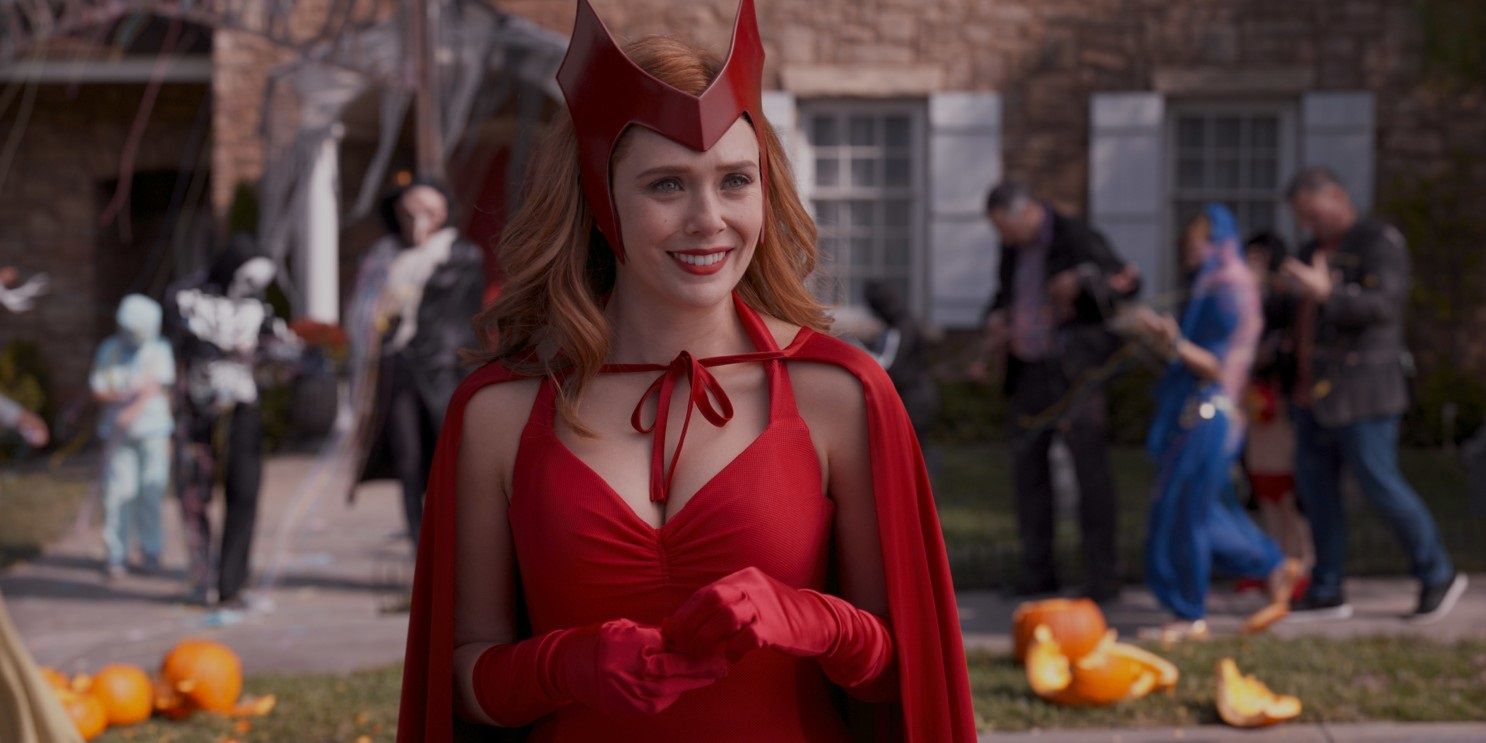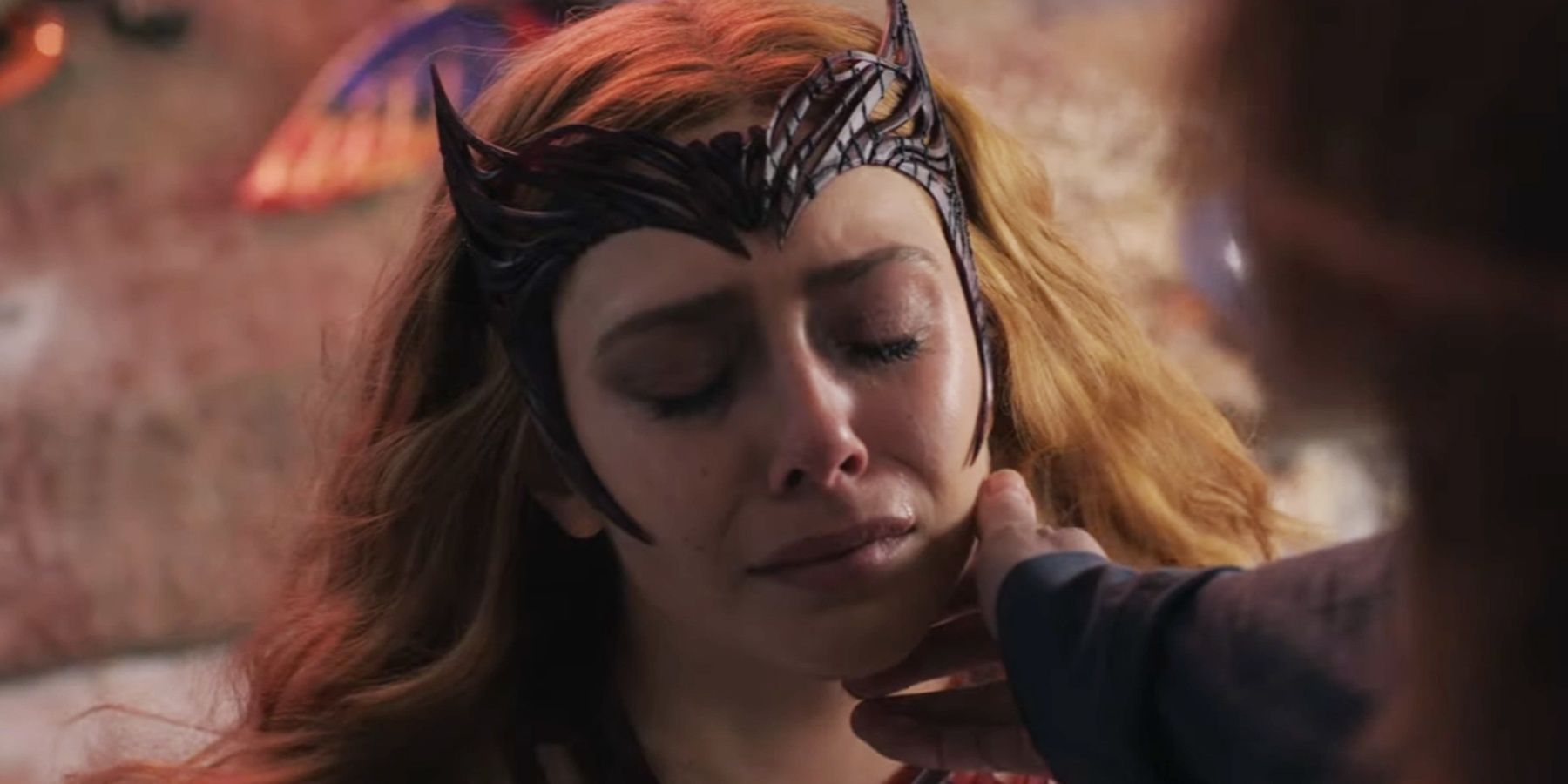The trailer for Doctor Strange In The Multiverse of Madness was finally released during the Super Bowl, and as expected, it sent the internet into a frenzy of fan theories and discussions. Marvel fans are well-known for dissecting every tiny detail put in front of them, and for good reason; Marvel loves to give little Easter eggs that hint towards the comics and future storylines. In particular, Wanda Maximoff's presence in the trailer (and the movie as a whole) was a hot topic. Many fans, particularly those who loved the portrayal of the character in WandaVision, were excited to see their favorite witch on screen again, in what seems like a morally ambiguous role.
The trailer seems to imply that Wanda doesn't have purely good intentions throughout the movie, and might even be a problem for Doctor Strange at some point. Many fans were thrilled by this, because they love the character and villainous characters in general, and they expressed excitement at seeing her become a baddie (with reactions equivalent to the "Good for her" meme). Other fans, however, immediately felt the need to remind everyone that Wanda is a bad person because of what she did in WandaVision, and she shouldn't be beloved because of her questionable morals. However, this take is a bit reductive towards the role of villainous or morally ambiguous characters, and seems strangely directed at Wanda and not the many beloved male villains in the Marvel canon.
Certain MCU fans on Twitter (the site where nuance goes to die) were upset that other sections of the fandom were making Wanda into a "girlboss", and they argued that she shouldn't be praised for her actions because she effectively enslaved a town. While this would be a morally reprehensible thing to do in real life, it's important to note that WandaVision is an entirely fictional story that is not based on any real people. The entire Marvel Universe is full of people doing questionable things that wouldn't be acceptable in real life because that's how fiction, particularly in comic books, works.
With this in mind, it's a bit pointless to try and hold fictional characters to real-life moral standards, because they're never going to live up to them. If fans want to start judging every MCU character's morals, there wouldn't be a single character left that hasn't massively screwed up in some way. Tony Stark is a war profiteer, Clint Barton went on a murder spree after the Blip, and Loki (perhaps one of the most beloved Marvel characters of all) was dead-set on world domination during The Avengers and had no qualms about killing people.
What's interesting is that most of these characters don't seem to face the same criticism that Wanda does, which is why it seems likely that the backlash towards her role in Doctor Strange seems to be more the product of misogyny than anything else. Wanda herself points this out in the Multiverse of Madness trailer, where she tells Strange that when she breaks the rules, she's made into a villain, but if he does the same thing, he's lauded as a hero. It seems like the female MCU characters are held to a different standard than the male ones, and the fact that Wanda is getting criticism for her actions when male heroes and villains have done much worse and not faced the same backlash just proves that.
A lot of times, those characters that have done some morally questionable things are some of the most interesting and complex ones. There's a reason that so many people love villains and morally gray characters, and it's because they have the space to do things and have conflicts that heroes rarely get to have. Storytelling is much more engaging when the line between good and bad isn't super clear. If every character fell into an archetype of either being fully good or fully evil, these kinds of stories would get really boring really quickly.
Wanda doesn't have to be anyone's favorite character, but trying to discredit fans who do like her by saying that they shouldn't because she's a bad person is such a strange way to look at a piece of media. If someone likes a fictional character, it doesn't mean that they would necessarily condone their actions in real life. Superhero comics and their screen adaptations are playing with the bounds of reality, and don't usually try to ground themselves too much. The whole reason they're fun is because they take place in a heightened reality where magic and superpowers are possible. While these stories can be used as a way to reflect the real world and comment on issues that actually affect society, they also shouldn't be used as a complete moral code.
Wanda very well might become the villain of Multiverse of Madness, or at least have a somewhat antagonistic arc in the movie. This doesn't mean that anyone who likes her as a character would condone her actions in real life, but it's fun to watch characters do bad things in fiction, precisely because it won't actually harm anyone or anything in the real world. Again, if people are going to claim that no one should root for Wanda because she did something bad, they should also be against the entire concept of the Loki show, but it really doesn't seem like they have the same energy for the male Marvel villains. In the end, it's not about morals, it's just about having fun with these crazy superhero movies, and watching characters get more complex and less black-and-white as far as good vs. evil goes.



